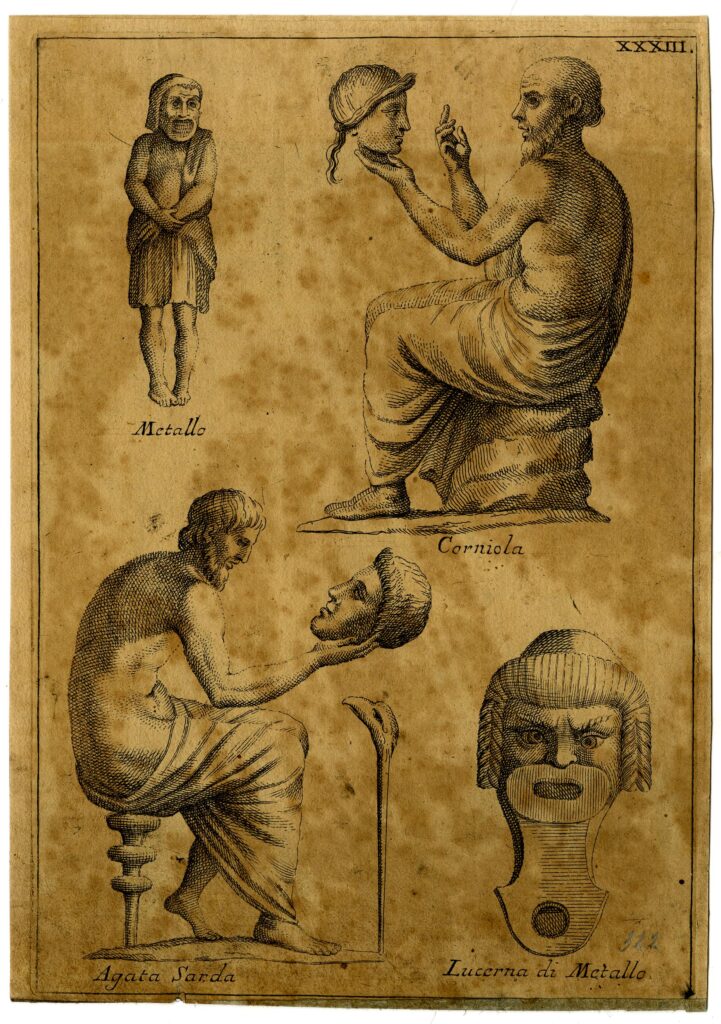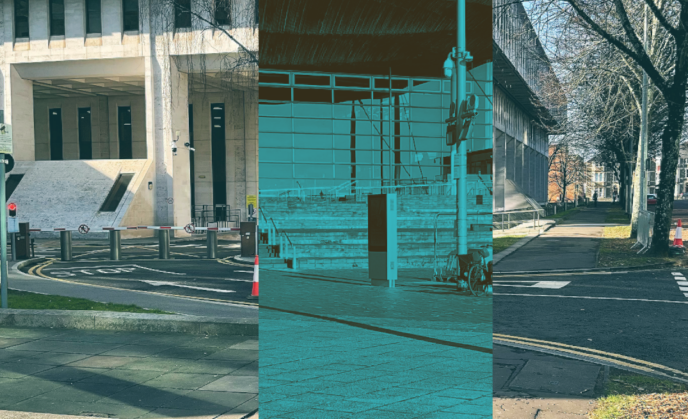In my research so far, I notice how some spaces are busier than others. The shopping centre of St David’s 2 has a stream of visitors, while the spaces of our public institutions are quiet. I wonder whether how busy the different spaces are, reflects the state of democracy. Does it mean that shopping is more important to people?
In Erving Goffman’s (1990) book The presentation of self in everyday life he explores human behaviour and suggests that we behave as if on stage. That we take on the role of what we think is needed in each situation. We learn language as if a script, we select our clothes as if a costume. When we take on one role we can suppress another and we could become type-cast, we may find it difficult to later play a different ‘role’ in society .

Shoshana Zuboff (2019) suggests that in the time when someone is “off-stage” they can be themselves. They can relax and discuss ideas that are not fully formed. That it is particularly important in adolescence as one can develop a sense of self “off-stage” (where one is not being influenced by others), and therefore necessary for forming or having a soul. The “off-stage” space could be one’s abode. A space which seems to be the only space which isn’t defined as “public” but is possibly changing with the use of digital devices, with their sensors and functions which bring the outside in .
Persona
Although Goffman’s book may be set in a modern capitalist world, the idea isn’t a new one. The word persona derives from ancient Greek for to wear a theatre mask . Where to play a part in theatre was to turn into someone else, a set character role in a show wearing a mask (see figure two). The word’s meaning and Goffman’s book suggest that when “off-stage”, we are still playing a role or that the self does not exist.
Persona definitions are used as a design method to better understand different potential perspectives of an innovation’s users. “Insights and research data” is used to group different consumers’ personalities and encourage the designer to apply empathy to different perspectives. Framing is used to create a new viewpoint or perspective of a scenario to solve a problem, developed by bringing together different solutions or ideas .
Changing Society
The individual’s behaviour, however it is formed, may impact the group behaviour, and the group may impact the individual.
Robert Putnam’s Making Democracy Work (1993) noted that the geographical areas that had better government and civic association 1, were also areas that had historically given more individual freedom and not authoritarian .
Organisations appear to be behaving somewhat like society and people’s worldviews. With time, people are moving from a pre-modern > to traditional > to modern > to post-modern. The organisation from red to teal; ego and vertical structure, to collaborative and horizontal connection. Linked perhaps with one’s generation, one’s ‘role’ could be already set or expected, or be one for you to develop, share, and celebrate. The different versions and expectations are mixed together in society .
Reflection
As I look to further my understanding of using public spaces for increasing engagement. I am interested in furthering my understanding of human behaviour in spaces, specifically:
- Are inferred behaviours responsible for the public engagement of democratic spaces? Does everyone (no matter their worldview) behave as they are told or should we expect the post-modern to behave differently?
- Do we, the custodians of public spaces, need to provide rules and guidance for new or reframed spaces?
- Do our spaces reflect the organisations that manage them? Will an organisation that is horizontally structured and collaborative engage a post-modern person which lives in (perhaps what they perceive as) an equal and individual society?
Notes
Note 1: In Making Democracy Work, Robert Putnam’s research observes that citizens in areas that form civic associations and live in a civic community are “trustful toward one another, even when they differ on matters of substance”. People are more considerate of others and willing to compromise on their own political stance or opinion. They tend to be happier: “happiness is living in a civic community”. A civic association is the forming of a group of individuals for reciprocity; such as a “choral society” .
This appears similar to bridging social capital: individuals and groups that connect with others (other individuals or groups) horizontally that are usually divided (such as the protected characteristics). Bridging social capital is outward looking, it is an outlook and action which creates a sharing of ideas and opportunities – it fosters equality and harmony .
Note 2: this post was included as part of an assignment for my Masters. It includes amendments made on 4 February 2025.
